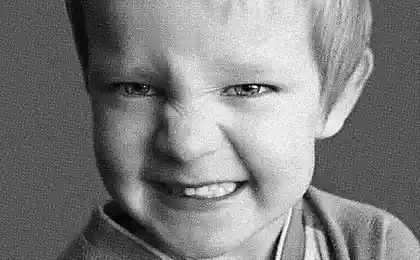409
What makes a parent great? Environmental parenthood
Description: The article reveals the essence of eco-friendly parenting and the important aspects that make parents truly great. The author explains why being a parent is not easy and how respectful attitude towards children contributes to their harmonious development.

Introduction
Being a parent is both a joyous task and an extremely difficult one. It is necessary to take into account many nuances of the child's development, his individual characteristics, emotional state and even social factors that affect the perception of the world. When we talk about "great parents"We mean those people who see the child as a person, respect his boundaries and at the same time show healthy severity. This understanding is closely related to what in recent years has been called "green parenting."
Environmental parenting involves not only respect for the environment and participation of children in the formation of a sustainable lifestyle. Rather, it is the concept of a non-violent and deeply conscious approach to parenting. A parent in this value system tries to create not just outwardly “right” conditions, but an environment where the child will grow up in harmony with himself and the world. How can this be achieved if being a parent is not easy, and being a good, decent parent is doubly difficult?
In this article, we will look at the key principles that make a parent truly great. We will analyze the features of the “ecological” approach, and also understand why these principles help to form a healthy attitude towards yourself, others and nature.
The Principles of Environmental Parenthood
Environmental parenting is not a strict algorithm, but rather a holistic worldview based on respect and respect. responsibility. Below are some fundamental components of this approach.
1. Recognition of the uniqueness of the child
Each child has his own inclinations, temperament, inclinations and interests. The task of a great parent is to distinguish these individual characteristics and help the child develop according to them, rather than trying to “fit” to their own expectations. For example, if a child is close to creativity, it is worth encouraging him in this, and not to impose purely technical or sports activities.
2. Education through dialogue
In green parenting, dialogue is always preferable to monologue. Not only does a parent talk, but listener baby. It is in this process that trust and understanding are born. It is possible to establish rules by avoiding orders and punishments, and by giving logical explanations and delineating boundaries. The more transparent the motivation of the parent, the more willing the child to follow these rules.

3. Conscious consumption and environmental responsibility
Ecological parenting implies a careful attitude not only to the psyche of the child, but also to the planet as a whole. After all, children learn by looking at the behavior model of loved ones. Therefore, the great parent tries to cultivate conscious consumption:
- Sort waste and involve children in this activity;
- Explain the reasons for careful use of water and electricity;
- The relationship between man and nature as a whole.
4. Unconditional love combined with reasonable limitations
A great parent always conveys to the child that he or she is valued and loved, regardless of grades in school or success in sports. At the same time, it is important to build clear and respectful boundaries so that the child feels stable and safe in the family.
Unconditional love is the recognition of the very existence of the child as a value. But love in an eco-friendly format does not rule out discipline. Discipline simply becomes an agreement based on the needs of both parties.
5. Understanding the role of emotional intelligence
Modern psychological research is increasingly proving that emotional intelligence (EI) plays almost a major role in how a person grows up: whether he will be able to conduct dialogue, cope with stress and build healthy social ties. Great parents invest in the development of EI in children, teach them:
- Recognize your feelings and call them by name
- Empathize, notice the emotional states of loved ones;
- Adequately express anger, fear, joy or disappointment.
Key qualities of the “great parent”
We have already mentioned the basic principles of green parenting. Now, let’s clarify what personality traits help parents maximize these principles.
Respect for the child as a person
Although children are dependent on adults financially and psychologically, they are full-fledged. To respect a child means to consider his interests, to listen to his position, to give him a choice where possible. This approach promotes self-reliance and responds to one of the key needs of the growing person – the need for recognition.
Flexibility and learning ability
Parenting is not a static skill. The needs of the child change, new pedagogical approaches appear, scientific knowledge about brain development expands. A great parent is always willing to learn and adapt to these changes. He is not shy about admitting mistakes and changing tactics if he sees that certain methods no longer work or harm the child.

Empathy and care for the psychological climate in the family
A great parent tries to create an atmosphere in the house where the child feels safe. It helps. empathyWhen an adult not only listens to the child, but also knows how to catch the emotional shades of his statements. At the same time, the parent also monitors their own emotions, avoiding outbursts of anger, insults or humiliating words.
The psychological climate of a family is determined not just by the absence of conflicts, but by the quality of interaction. Constructive conflicts can also be helpful if all participants in the conversation keep a respectful tone and focus on solving the problem rather than blaming it.
How sustainability helps a child in adulthood
Environmental attitude to education includes not only careful treatment of nature, but also the general principle of harmony with the surrounding world. A child who grows up in a similar environment acquires:
- Ability to build healthy communications. He gets used to dialogue, he knows the mechanisms of mutual respect and compromise.
- Internal stability. Knowing that he is accepted and loved, the child more easily overcomes the difficulties associated with learning, relationships with peers and their own mistakes.
- Responsible attitude to natural and social resources. Realizing that every thing has a price and nature needs protection, the child grows more environmentally friendly in the broadest sense of the word - taking care not only of himself, but also of the planet.
- Emotional intelligence and empathy. Understanding one’s own feelings and the ability to “look” at the world through the eyes of others is the most important component of a successful life, both personally and professionally.
Conclusion
What makes a parent great? First of all, combination Respect for the child and a clear awareness of their role as a mentor, protector and friend. Ecological parenting is about the balance between love and discipline, between caring for the inner world of the child and caring for the external environment.
Raising a child means not only giving him food, clothing and education, but also helping him develop as a person who is able to take responsibility for his actions and perceive the world with an open mind. Great parents are the ones who are exampleThey teach children the basic principles of life: honesty, empathy, awareness and respect for the surrounding reality.
The difficulty is that each parent has their own experience, strengths and weaknesses. But eco-friendly parenting in general reminds us that the key to success lies in continual development and an open heart. “Being a parent is not easy, and being a good, decent parent is doubly difficult.” But it pays off because it gives the world people willing to build a healthy society and treat nature not as an infinite resource, but as a fragile home.
Glossary
Environmental parenthood
An approach to education based on the principles of respect for the child, conscious consumption of resources and careful attitude to the mental and physical well-being of the family.
Emotional Intelligence (EI)
A person’s ability to recognize emotions (his own and others’), express them appropriately, and use this information in behavior.
Unconditional love
Acceptance and love for a child not for any achievements, but for the very fact of his existence.
Temperament.
Innate features of the psyche that affect emotionality, energy and human behavior.
Psychological climate
The general atmosphere in the family or collective, determined by the attitude towards each other, the level of trust and feelings of security.
Predictions of the near future, which turned out to be the most incorrect
A Psychology Guide for a Beginner Investigator























